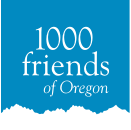By Sarah Yeoman | 3-minute read
The 450-acre plot of land outside of Albany overseen by the Kenagy family has seen fluctuations and changes over the past century. Their farm began with 60 acres in the 1930s, growing crops for the now-defunct local cannery. Over the years they have adapted, transitioning first to hybrid radishes, berries and wheat, and now cultivating a mix of native seeds and seeds for vegetables, grass, cover crops, and beans. Alana Kenagy is part of the fourth generation of caretakers bringing this farm into the future.
“I don’t know if I would be farming if I hadn’t been born into it,” Alana says. “It’s also a deeply woven part of me...I feel 100 percent rooted to this land that my family stewards and that I’ve grown up on and lived on for most of my life.”
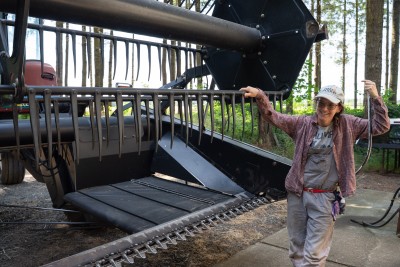
As someone who has been entrusted with the responsibility of carrying on tending this spot on a bend of the Willamette River, Alana feels the generational shift in farming practices and community. Land prices have risen sharply, global market prices are volatile, farmers face more frequent natural disasters and shifting patterns of temperature and rainfall, and burnout weighs heavily on young farmers in the twenty-first century.
“Fossil fuels are incredible in terms of the labor hours that a tractor or a machine can do. But 20 years from now, am I going to be relying on machines or people more? I think part of my role in the generational ancestry of the farm is to figure out how to incorporate people better into the landscape and into working collaboration,” Alana says. “Whereas in my dad's era … he worked towards really figuring out how to make things efficient and how to bring in native species and reintroduce native species. And so what is mine to carry on or to complement that?”
Alana’s people-forward ethos prioritizes building thriving relationships and understanding how farm work, farm workers, and farm culture intertwine.
“Farm workers are super important people who are willing to do the physical labor and who will show up day after day with a work ethic to keep things going,” they say. “The thing I think about most is we don't do this alone. We do lots of things alone, we have been shaped as individuals, but we need other people as support… relationships matter.”
And while the "every-person-for-themself" mentality may be hard to let go for some, it probably won’t work in a future that must be sustainable for everyone.
“Working together is not the easy default,” Alana says, “But to really get into quality and sustainability and depth, how can I be a part of a dynamic team and a generative community where we work together and coordinate things? Because that's the world I want to invest in rather than, ‘everyone for themself, let's all try to concentrate as much wealth as we can.’”
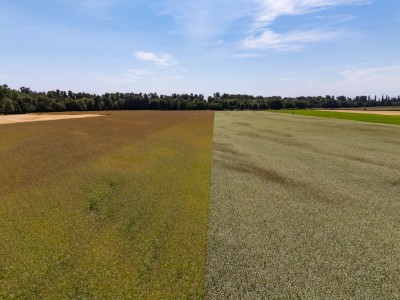
The future of farming, Alana says, looks smaller. At 36 years old, Alana says she only sees people her age have access to large portions of land because they inherited it or are connected to landholding in some way. Land prices in general have increased dramatically, pricing out many new farmers, and causing others to buy smaller tracts of land. In spite of the hurdles, Alana has observed a wave of younger people who are interested in getting into the field.
“I see more people of the younger generations wanting to get into farming because they believe food is a part of survival or because they really believe in managing the land more organically or differently from how it’s been in the past,” they say. “Is it more sustainable for everybody to be growing their own food? Or for just a few people to be growing food? I think the answer is somewhere in the middle … I don’t have the answer but I’m very curious and interested to participate.”
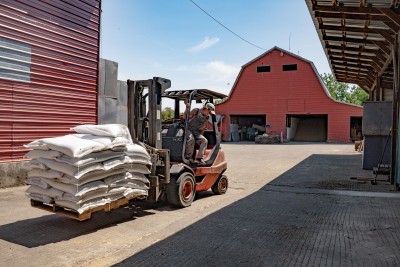
Sustainability doesn’t exist in a vacuum, and understanding issues like housing and labor are key priorities in her beliefs for a viable future.
“A big part of my interest in 1000 Friends is how it connects to the whole fabric of society. Like, how do we have a strategic plan? How do we develop in ways that are good for human health?” Alana says. “I'm super passionate about housing … People need a place to be, and they need a place to make things and eat things and do things and rest. I don't want that just for me, I want that for everybody.”
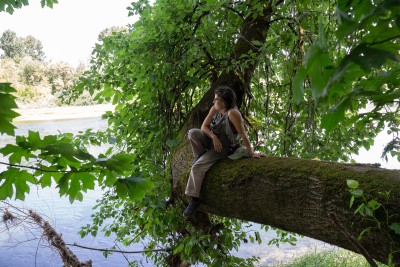
Alana also acknowledges their privilege of growing up in a stable home, having the opportunity to easily connect to nature, and inheriting land that they get to continue to steward. In this vein, Alana feels they can’t offer advice to people in different situations, but they can advocate and help shape a future where land and health and housing are accessible for all people.
“I think the importance of 1000 Friends of Oregon is investment in remembering the history, remembering the land, and trying to carry some continuity into the future while also working for transformation,” Alana says. “Obviously there is something that I have gotten – that probably other people get from growing up in relationship with land – that compels us to stand up for that land being in active growing and ecosystems, rather than pavement.”
